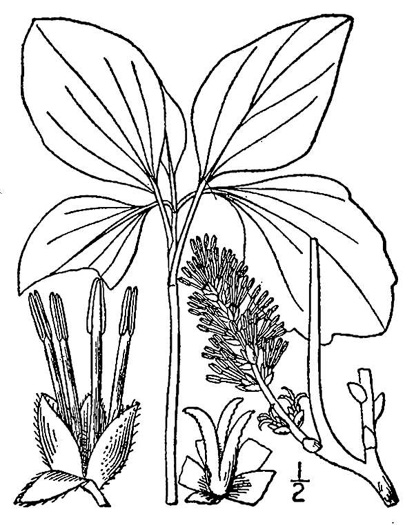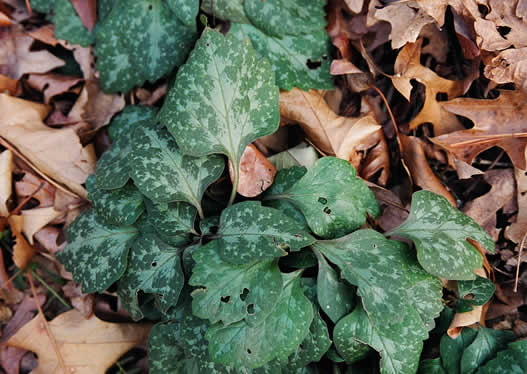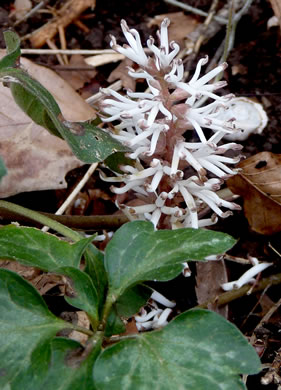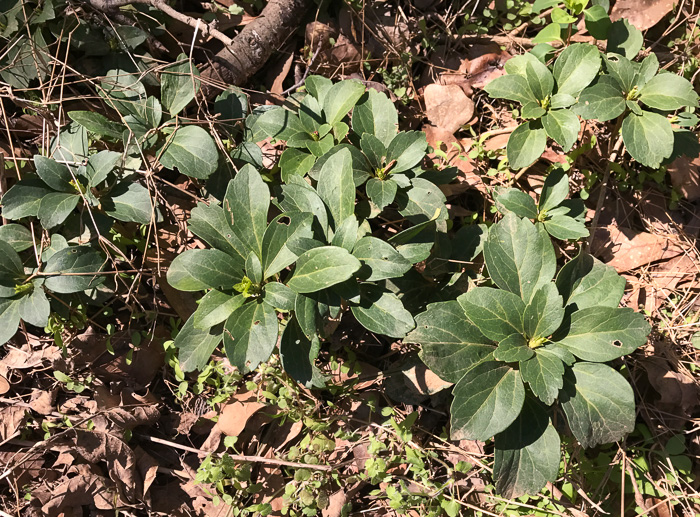Hovering over an image will enlarge it and point out features (works better on desktop than on mobile).
![]() A camera indicates there are pictures.
A camera indicates there are pictures.
![]() A speaker indicates that a botanical name is pronounced.
A speaker indicates that a botanical name is pronounced.
![]() A plus sign after a Latin name indicates that the species is further divided into varieties or subspecies.
A plus sign after a Latin name indicates that the species is further divided into varieties or subspecies.
Most habitat and range descriptions were obtained from Weakley's Flora.
Your search found 3 taxa in the family Buxaceae, Boxwood family, as understood by Weakley's Flora.

![]()
![]() Common Name:
Allegheny-spurge, Mountain Pachysandra
Common Name:
Allegheny-spurge, Mountain Pachysandra
Weakley's Flora: (4/24/22) Pachysandra procumbens FAMILY: Buxaceae
SYNONYMOUS WITH PLANTS National Database: Pachysandra procumbens FAMILY: Buxaceae
SYNONYMOUS WITH Vascular Flora of the Carolinas (Radford, Ahles, & Bell, 1968): Pachysandra procumbens 108-01-001 FAMILY: Buxaceae
Habitat: Moist rich forests, mainly over calcareous or mafic rocks
Rare
Native to the Carolinas & Georgia

![]() Common Name:
Pachysandra, Japanese-spurge
Common Name:
Pachysandra, Japanese-spurge
Weakley's Flora: (4/14/23) Pachysandra terminalis FAMILY: Buxaceae
SYNONYMOUS WITH PLANTS National Database: Pachysandra terminalis FAMILY: Buxaceae
SYNONYMOUS WITH Vascular Flora of the Carolinas (Radford, Ahles, & Bell, 1968): Pachysandra terminalis 108-01-002 FAMILY: Buxaceae
Habitat: Persistent after cultivation, and spreading vegetatively to adjacent forests; commonly cultivated, rarely persistent to naturalized
Waif(s)
Non-native: China & Japan

Common Name: Boxwood, Common Box
Weakley's Flora: (4/24/22) Buxus sempervirens FAMILY: Buxaceae
SYNONYMOUS WITH PLANTS National Database: Buxus sempervirens FAMILY: Buxaceae
Habitat: Persistent for decades at abandoned homesites, and spreading weakly from dumped hedge trimmings and other cuttings
Waif(s)
Non-native: Europe
Your search found 3 taxa. You are on page PAGE 1 out of 1 pages.





